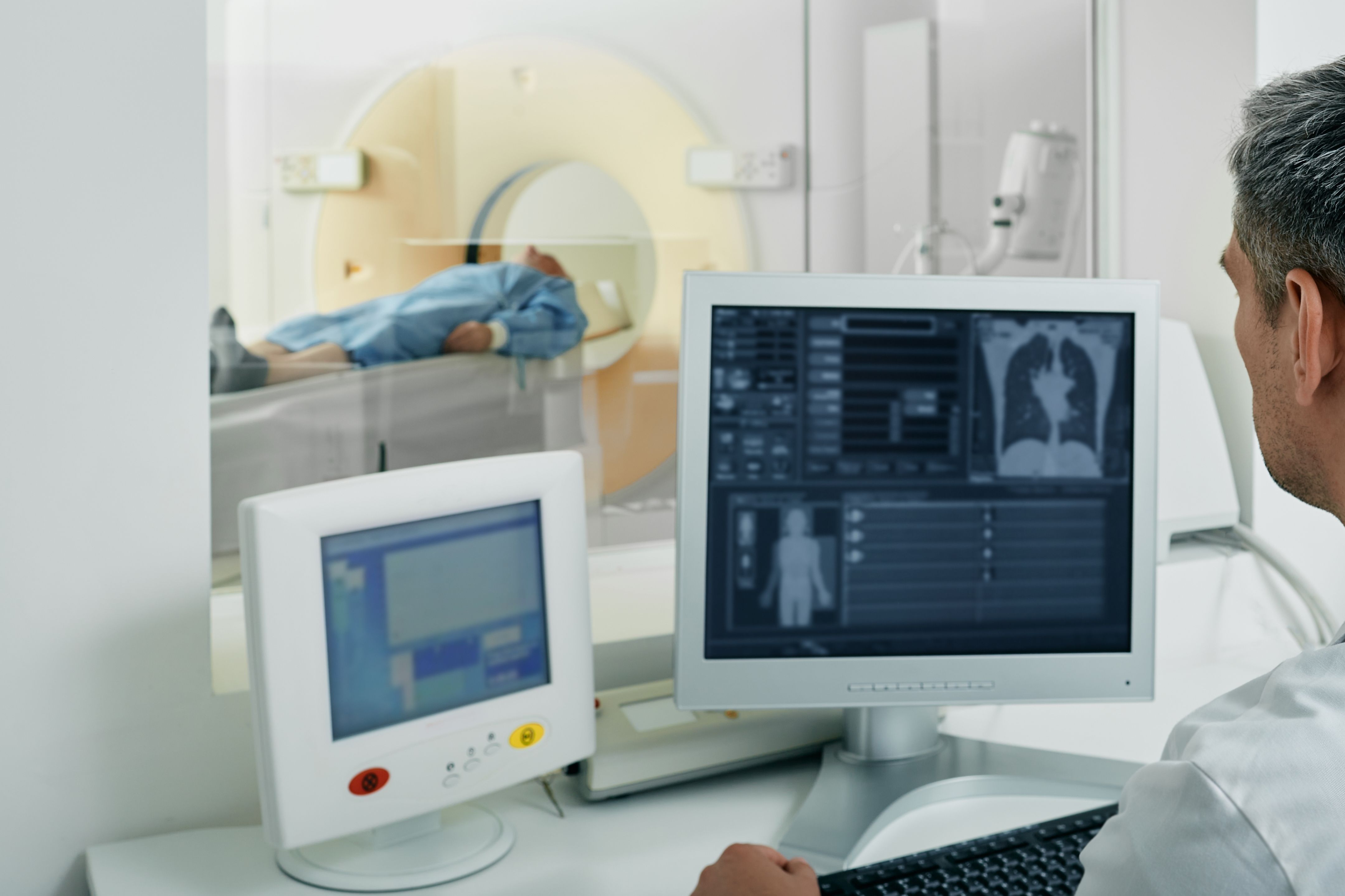
(Vienna, 12 September 2025) In a multidisciplinary collaboration, a research team from the Medical University of Vienna and Univdersity Hospital Vienna has demonstrated that a novel imaging technique could predict the progression of severe pulmonary complications in patients with rare autoimmune muscle diseases at an early stage. The study, recently published in the Journal of Autoimmunity, shows that FAPI-PET/CT – a method for visualising scarring and inflammation in lung tissue – is more sensitive than conventional methods. This could represent an important step towards more precise risk assessment and more individualised treatment of interstitial lung disease (ILD) in myositis.
Interstitial lung disease (ILD) is one of the most dangerous complications of myositis (an autoimmune inflammation of the skeletal muscles) and often leads to shortness of breath, frequent hospitalisations and premature mortality. It is difficult to identify which patients will experience a deterioration in their condition, as the tests currently available often only indicate changes once lung damage has already occurred.
The joint study by researchers from the Division of Rheumatology in collaboration with the Division of Nuclear Medicine and the Division of General and Paediatric Radiology at MedUni Vienna and University Hospital Vienna shows that FAPI-PET/CT, an imaging technique that visualises scarring and inflammation in the lungs, can predict the course of the disease. In a two-year study involving 14 patients, those with higher uptake of the FAPI tracer at the start of the study were more likely to experience worsening ILD, require more intensive treatment or need hospitalisation.
"With this imaging technique, we can visualise lung scarring before extensive and irreversible damage occurs," says Peter Mandl, lead author of the study from the Division of Rheumatology (Department of Medicine III) at MedUni Vienna and University Hospital Vienna. "As a supportive tool for risk assessment – in addition to established standard examinations – FAPI-PET/CT can help to identify high-risk patients earlier and, if necessary, tailor therapies more individually."
The authors point out that the results need to be confirmed in larger studies, but see FAPI-PET/CT as a possible step towards precision medicine for ILD.
Publication: Journal of Autoimmunity
FAPI PET/CT for tracking disease trajectory in myositis-related interstitial lung disease
Kastriot Kastrati*, Svitlana Pochepnia*, Oana C. Kulterer, Thomas S. Nakuz, Daniel Mrak, Irina Gessl, Elisabeth Simader, Florian Prayer, Helmut Prosch, Lukas Nics, Stefan Schmitl, Daniel Aletaha, Helga Lechner-Radner, Marcus Hacker*, Peter Mandl*;
Journal of Autoimmunity, August 2025. DOI: 10.1016/j.jaut.2025.103471